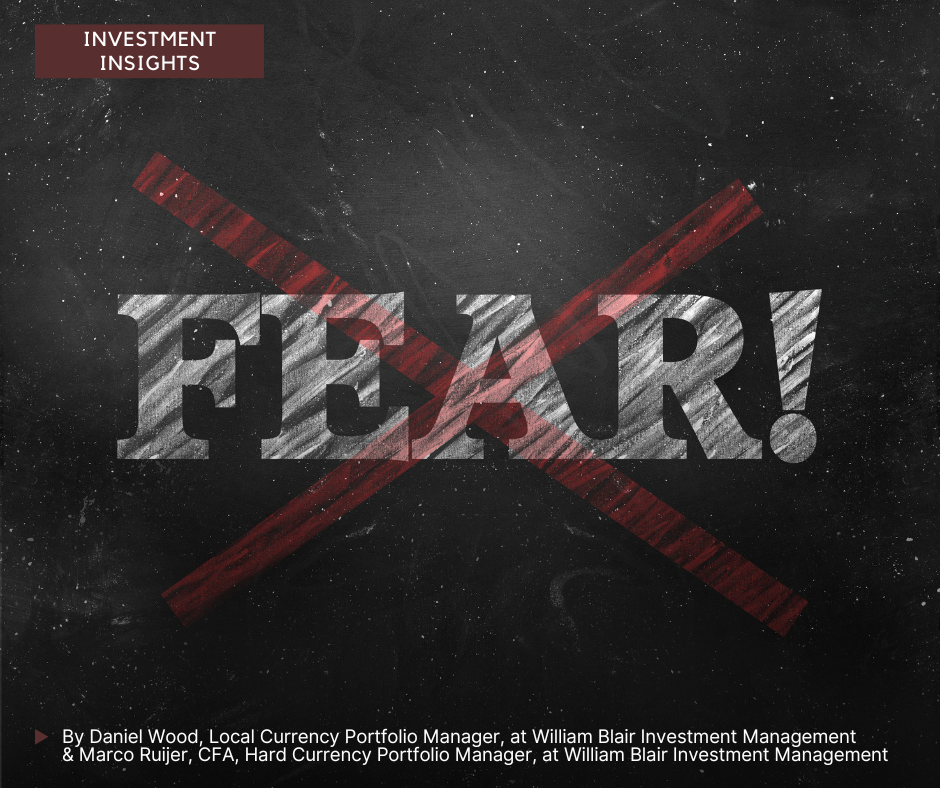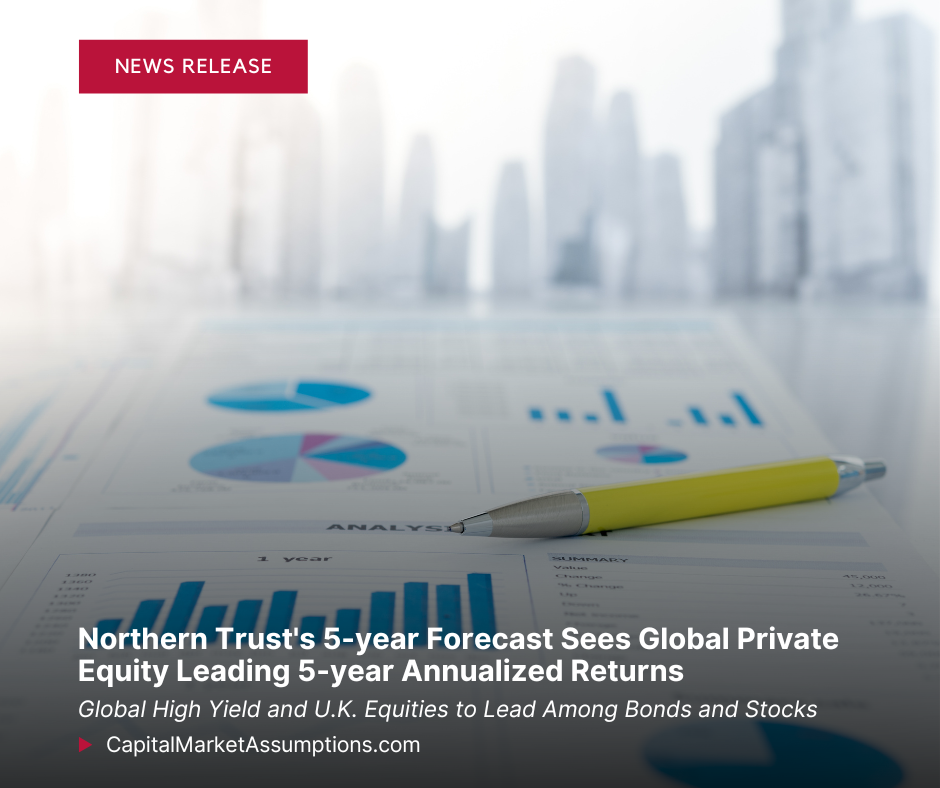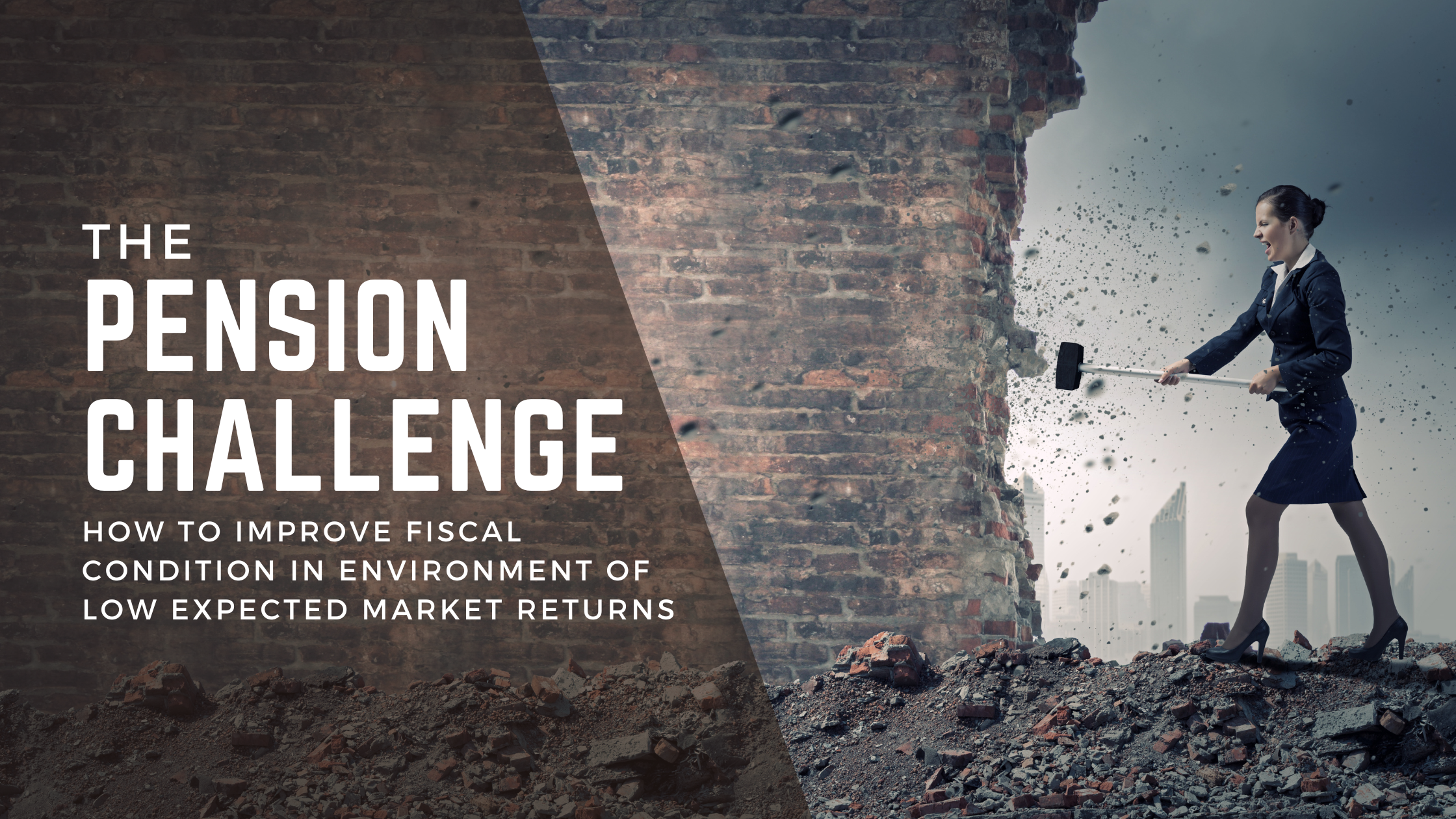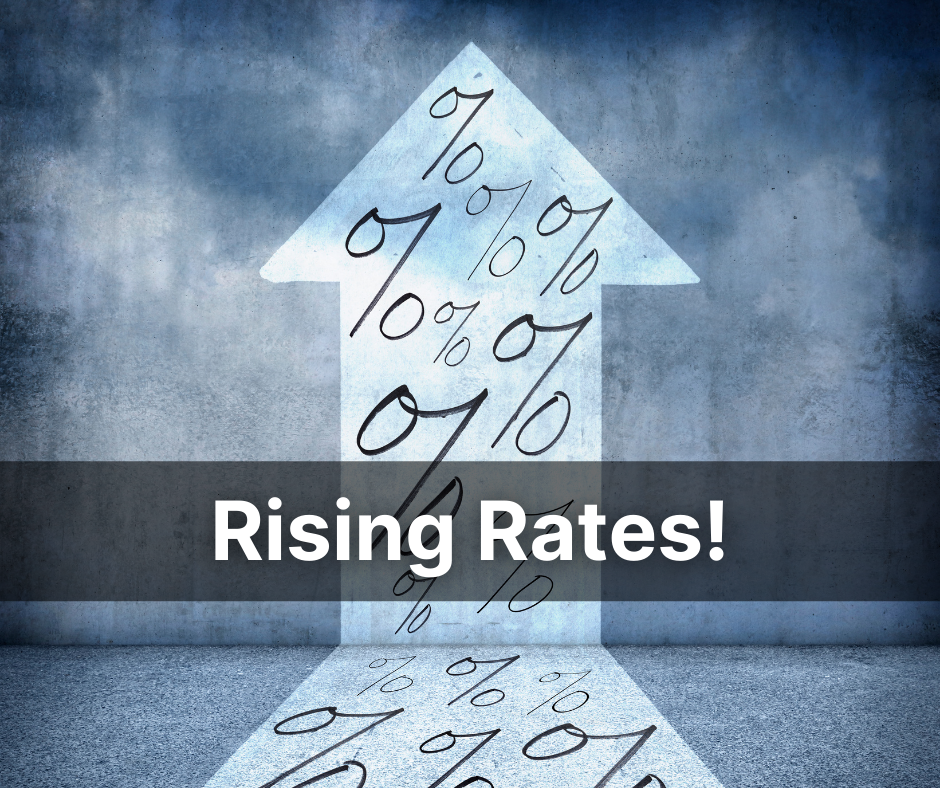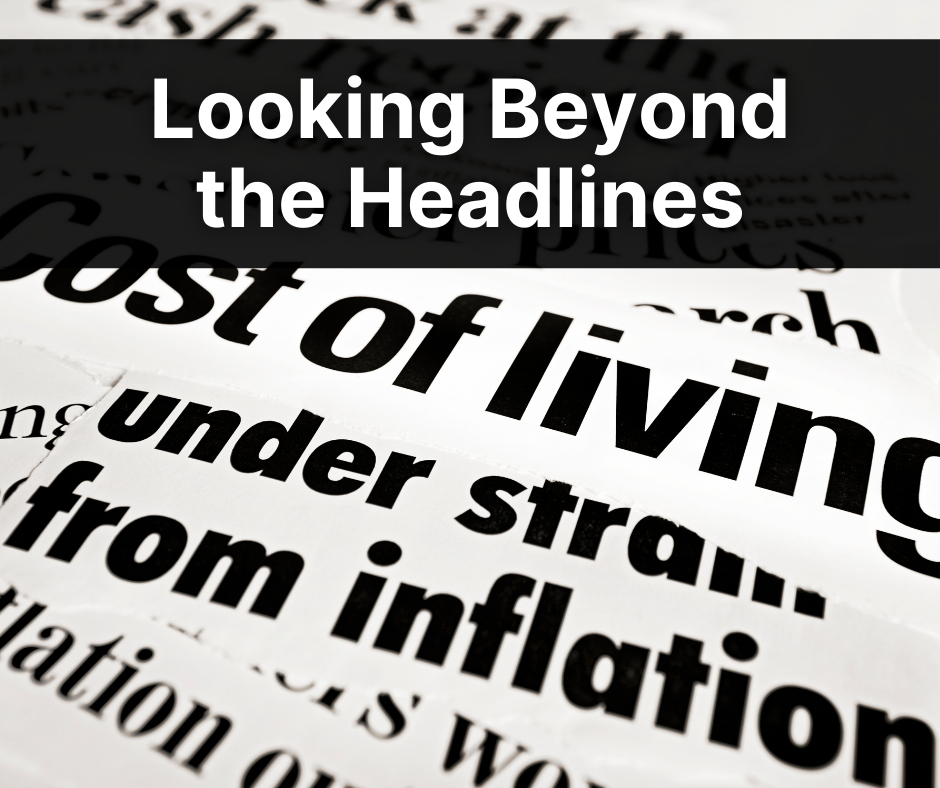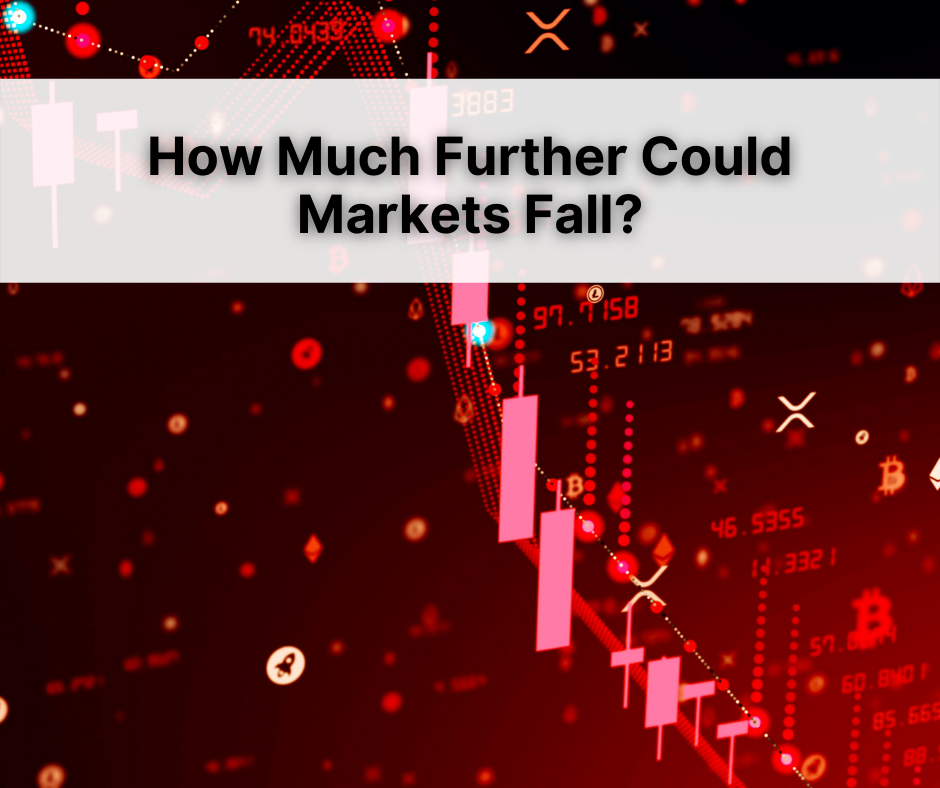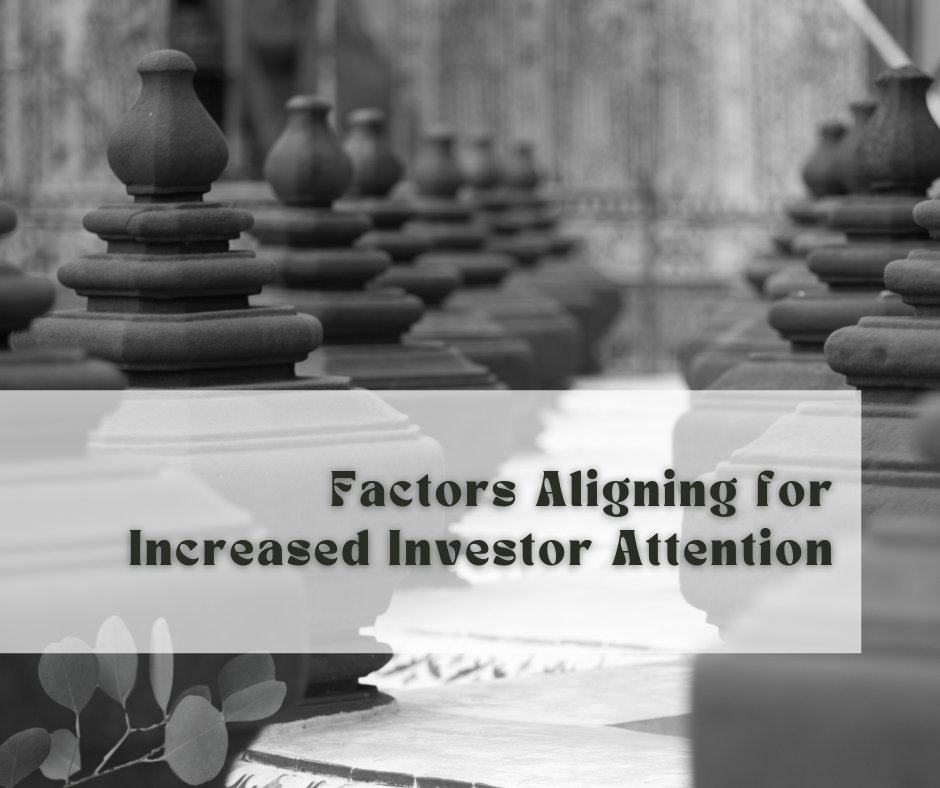The speed and extent of further monetary tightening in the United States is uncertain, and as a result, there are concerns about the impact of rate hikes on future fixed-income returns. But we do not believe investors should be concerned, and this may even be a buying opportunity.
CHICAGO and LONDON, 7 September 2022 – Northern Trust’s Capital Market Assumptions (CMA) Report, a multi-asset class, five-year investment outlook updated annually, expects global private equity to lead five-year annualized returns at 9.6%. Global high yield and U.K. equities are expected to lead bond and stock returns, at 7.5% each. Returns are expected to be within a global growth environment that slows to 2.6% annually.
Read More
Interest rates have been on a secular decline since the early-1980s after Paul Volcker pushed short-term rates to nearly 20% to beat back inflation. Today, by comparison, the Fed Funds rate is targeted between 0.25% and 0.50%. Unfortunately, as interest rates fell, pension discount rates have barely budged, leading to a widening “yield gap” between what plan fiduciaries expect to receive from the market and what the market can realistically provide.
Read More
Numerous market commentaries and opinion columns since Russia’s invasion of Ukraine have highlighted the fading investor perception of emerging-market assets. The story so far has played true to the worst emerging market stereotypes that global investors dread. A leader who started by promising stability and prosperity ends up as a thuggish strongman, callous enough to sacrifice the future of his own people in a destructive quest for glory. A country with vast resources and growth potential sliding rapidly down into economic desolation. Global investors who saw the promise and poured in billions, only to see it all evaporate in a matter of days. Political maneuvering by other countries spreads the risk perception and triggers investor panic elsewhere. We have seen parts of this storyline in the past, albeit on a smaller scale.
Read More
Experience in emerging markets (EM) teaches the importance of knowing when to react quickly and when to ride out the storm.
Read More
“Go West, Young Man, and Grow Up with the Country!” The famous line from Horace Greeley’s most famous editorial was about capturing and capitalizing on the opportunity and pioneering spirit in the West. Greeley’s East was crowded and stagnant, and the best opportunities and growth lay west of the Mississippi. The availability of exciting, new opportunities and entrepreneurism in the West still applies just as much today, especially for investors.
Read More
It’s hard to miss recent news headlines about the “global energy crisis.” Resilient global demand and a lack of sufficient available supply have created an energy crunch that has pushed up global energy prices. Soaring oil, natural gas, and coal prices are happening just as the winter heating season approaches in the Northern Hemisphere and as rising inflation poses an increasing risk to global economic growth.
Read More
I began my career in 1994 marketing investment management services to public retirement systems in Texas and throughout the United States. I write this article to share a unique retirement planning concept for both active and retired public employees.
Read More
When it comes to tackling climate change, there is some consensus around what needs to be done—but solving for the how is much more complicated. In some ways, the urgency around this question has intensified amid the conflict between Russia and Ukraine. While extremely concerning from a humanitarian perspective, the conflict has also accelerated the thinking around energy security and energy independence.
Read More
Emerging markets endured a challenging 2021, dragged down mostly by China and South Korea, which represent close to half the index. But the developing world is diverse, and many individual countries did well. We expect improvement on several fronts in 2022, and the outperformance of EM over developed markets in January—despite turbulent market performance—is also encouraging.
Read More
The Shift to the Cloud
We believe the COVID-19 crisis has facilitated a fundamental reshaping of society in how people shop and pay, along with how businesses interact with their employees, customers, and other businesses.
Read More
The Difference in Impact of Inflation on Public and Corporate Pension Plans
The impact of inflation on defined benefit pension plan liabilities might surprise you. For private plans, the news is mostly good. For public plans, it is more challenging and provides a good reminder that public plan sponsors need to keep making their full pension contributions even if times are difficult.
Read More
When advising our sons and daughters on how to invest for their retirement in roughly 60 years, we point them to stocks and the budding venture capital ideas of their classmates. The same advice might also hold true for perpetual institutions with a nearly infinite time horizon, no annual cash-flow requirements, and a passing interest in market volatility.
Read More
With headline inflation at multi-decade highs investors are rightly concerned and it bears an in-depth look. Some of the drivers of price rises have persisted longer than the Fed expected. But looking beyond the headlines at some of those drivers of the last twelve months could be useful.
Read More
Assessing Fair Value
Since mid-January risk markets have experienced elevated volatility and weakness due to fears of the Fed’s tightening policy. Market segments with the highest valuations and most perceived sensitivity to rates have suffered the worst, as many investors took gains after a sustained post-pandemic run. While it is important to not overreact to short-term swings, it’s also important to assess possible downside moves from here based on both technicals and fundamentals.
Read More
Spreads and yields/rates is the simple answer to the above question. Let’s take a look at what is going on:
Read More
Even after strong performance in 2021, listed infrastructure stands to potentially benefit in 2022 from a favorable macro backdrop, investors’ search for inflation protection, and attractive valuations.
Read More
Why the End of Monetary Accommodation Could Be a Tailwind for Active Bond Investors
The north star of active bond management is simple: avoid losing money. Over the last eighteen months, that proved quite easy to accomplish. In the period since credit spreads hit their pandemic-highs, outperforming has proved reasonably straightforward as long as investors stayed overweight the market. Unprecedented central bank and fiscal support has driven a swift bounce back in economic activity that has resulted in positive returns for credit market investors (and investors in risk assets of almost every stripe). But as the Fed looks to withdraw monetary accommodation, and fears about inflation, record debt levels and uneven and unstable recoveries intensify, investors could be forgiven for thinking that the outlook will be much more challenging in the year ahead.
Read More
Editor's note: Before Steve Toyota, a Vice President on the Business Development team at fund management and investment advisory firm Capital Dynamics, he spent 28 years with the Miramar Police Department. He retired from the police department in February of 2021. He had served as a trustee on the Miramar Police Officers' Retirement Plan Board since 1998 and was chairman of the Board from 2005 to 2019. During his 20-plus years as a trustee on this retirement plan's Board, he worked with investment managers of nearly every asset class, helping grow the plan from $20 million to $260 million. At Capital Dynamics, as a global private asset manager, he focuses on private equity, private credit, and clean energy infrastructure and has gained extensive knowledge and experience developing solutions tailored to meet the needs of a diverse and global client base of institutional investors, including public pension systems. In this blog post, he explains why it is important for trustees to get involved in their retirement plan's decisions, why he moved from policing to investment management and offers advice to trustees.
Read More
Note: This piece was adapted from a roundtable discussion. -- What do corporate fundamentals look like in a year where inflation and rates are taking center stage? Developed and emerging market (EM) corporates look fairly well-positioned, supported by the continued re-opening of economies and largely successful vaccine rollouts around the world. Earnings have also improved across the board, and defaults are expected to remain low going forward. That said, there are ongoing concerns around inflation amid rising raw material costs and supply-side disruptions. Although many companies have been able to pass higher costs through to consumers, the longer-term casualties from the tangled supply chain will have repercussions for some time to come—and we have likely not yet seen the full effects of wage inflation. These factors raise questions around how much margin compression may result from continued inflationary pressures going forward and the ultimate impact of inflation on consumer demand. On the positive side, for both developed and EM companies, we've seen a significant amount of refinancing in 2020 and 2021, meaning many companies have locked in lower funding costs and now have a stronger buffer against these pressures. This should help keep corporate fundamentals relatively stable.


